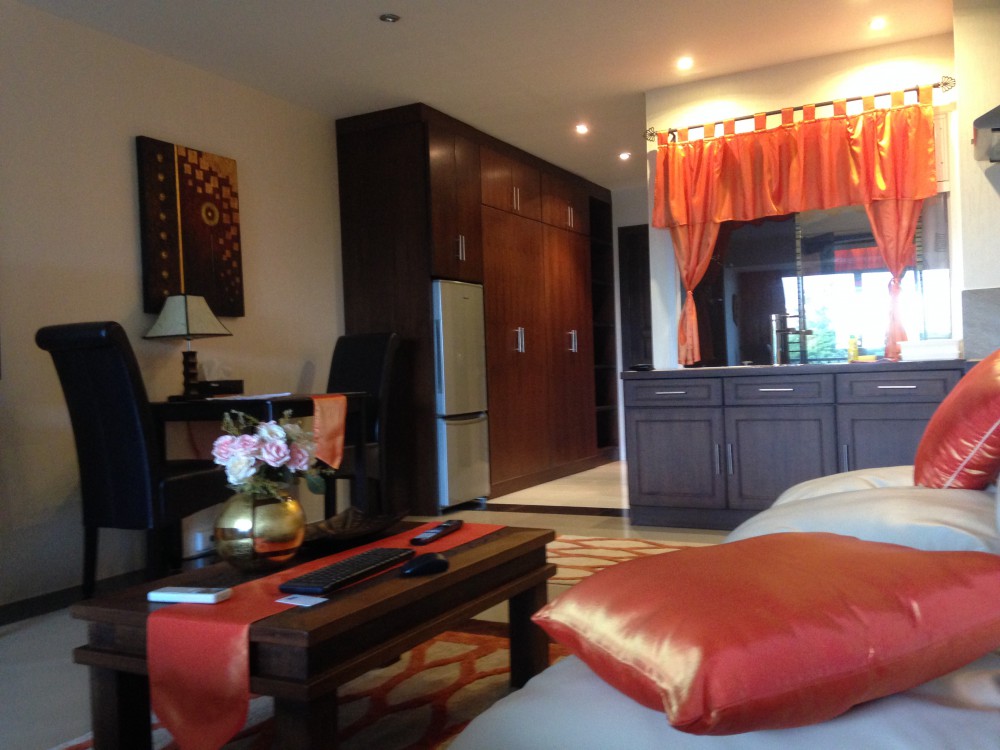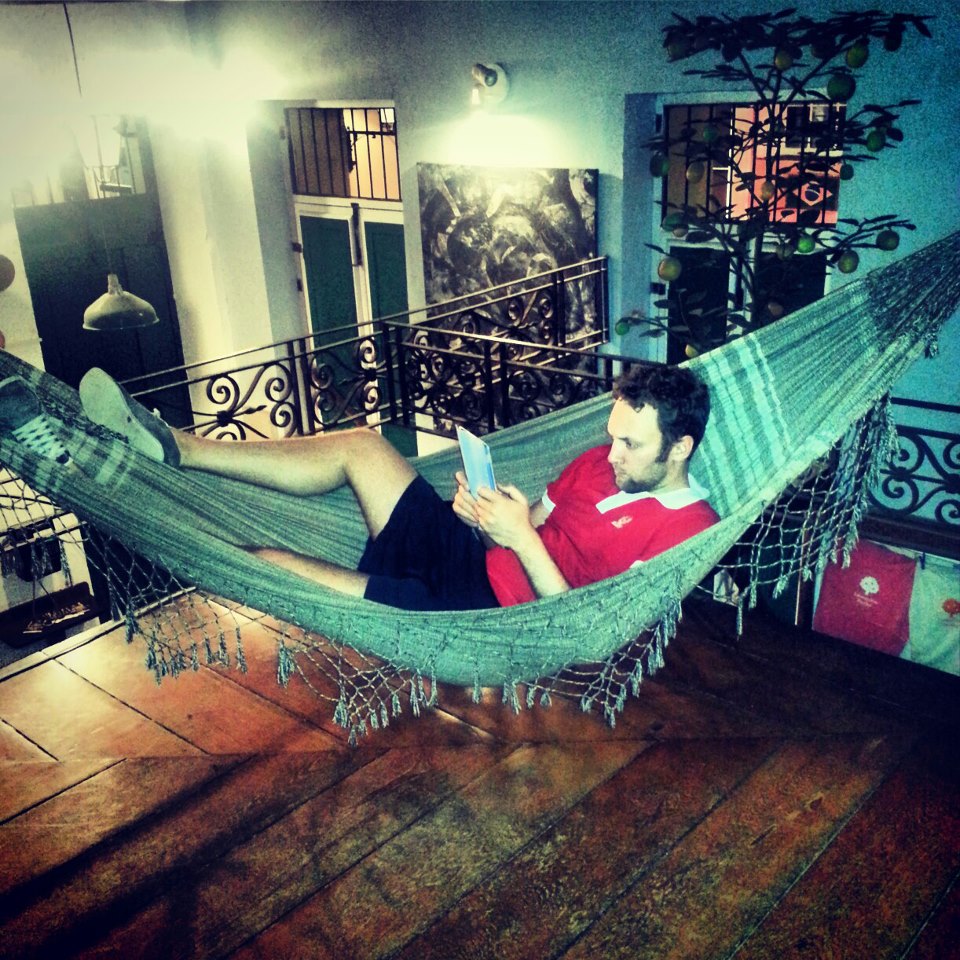Hello fellow nomads, my name is Johannes and besides being an avid world traveller, a software developer and a steak afficionado, I run an online business in the affiliate marketing space. You should also follow me on Twitter.
In 2014 I traveled to in total 9 countries during various trips and I fell in love with Airbnb as a platform and made heavy use of it for short- and mid-term-accomodation. Staying at different places, in different countries, urban and rural areas, I learned lots of useful insights of how to best leverage Airbnb. I am going to share five strategies with you today that proofed useful for me.
Since it’s inception in 2008 during a conference in San Francisco AirBnB has come a long way. Originally named after renting an “airbed in other people’s living rooms”, you can now rent almost anything on the platform including houseboats, a Tesla Model S, treehouses and over 600 real castles.
Airbnb is growing at enormous rates and surpassing even large hotel chains with their inventory of hotel-like accomodation. In July 2015 founder Brian Chesky mentioned on twitter that the number of listings was reaching 1.5 million up from 1 million at the end of 2014.

By the way, Brian is really doing well and considered by some as the best startup CEO since Mark Zuckerberg.
But enough with the background on the platform that you probably already know all about. Here come the strategies.
Making Use of Referral Codes
A very attractive reason to stay at places on Airbnb is the referral program. A large part of Airbnb’s new customers actually comes through their referral program which is at the core of several growth hacks the company makes use of.
A referral program works similar to an affiliate program, but the monetary incentive is not the main focus to referr a new user – both parties involved receive a benefit. Currently, if you referr a new user, both people receive $25 in Airbnb credit that can be used for the next stay. This is a lot more effective than a pure commercial referral as both parties are incentivized. If you play your cards right, you stay for free a lot of the time.
The referral program works extremely well on travel blogs. Recruiting hosts through your referral link is even more effective. You will receive $75 if someone rents out an appartment through your code. So, if you haven’t been active on Airbnb just yet, just use this link to get started.
A couple of ideas, where the referral codes works really well:
About Me / Resources style pages: Create a site about you and the services that you use and recommend Airbnb as one of the services and explain why you use it. Same goes for lists of resources.
Within Blogposts about trips: When you are writing up a post on a certain trip or location and you stayed with an Airbnb host, mention it and ideally the apartment and use your referral link.
Newsletters: If you have a mailing list, you can include a mention on the bottom of the email that says “Use this referral code to get 25$ of Airbnb credit for free”
Social Media: When posting e.g. pictures about a place you are staying at, mention the listing on Airbnb. This works really well on Facebook. It is also possible on Instagram, but you can only put a link in your profile and you have to mention it in the text underneath the picture.
Coupon or voucher code sites work well for obvious reasons.
2. Finding real hosts instead of small time hoteliers
The original idea of Airbnb was to start a community of people who let each other stay at their apartments or houses. It gave one group of people the means of earning additional money and the other group the possibility to stay at authentic places just like locals and for a very competitive price. But economic activity also attracts the attention of business-savvy individuals. I like to differentiate between real hosts, who rent out a place they usually live in themeselves vs small time hoteliers – individuals who run lots of properties for the sole purpose of renting them. A fun fact: A single individual in Berlin runs 147 listings on Airbnb. Obviously he only rents out the rooms when he does not stay there himself ;-) This only works if you are a real professional because many hotels have less than that amount of rooms.
Both types of hosts have advantages and drawbacks. Real hosts are usually very authentic, often stay in the place themselves while you are there, some of them cook for you and are genuinely interested and helpful. This is what I would call the “original” Airbnb experience.
Here I stayed in Vallejo, California for a Napa wine trip. The hosting couple was really nice (Tuesday was movie night) and served amazing waffles for breakfast which could be enjoyed on the terrace with a stunning view. Not the typical business-like hotel feeling.

Professional hosts are often exactly that – professional. Key handovers are done frequently and therefore usually work very realiably. The hosts also heavily rely on positive reviews to attract future business. So generally, everything will be planned, prepared and taken care of. Towels, WiFi and the like.
Here I rented a fully furnished apartment in Chiang Mai from a German expat. Everything was taken care of and there were some convienient facilities – I even washed some clothes and went to the gym twice.

So, before you book, make sure you know if you want the professional experience or the “travel like a local” original experience.
If you are looking for authentic, you should look for rooms or the like, not complete appartments or houses. Also look for people that have only one listing. For professionals look for the exact opposite: Full appartments that you have for yourself and people with multiple listings. When you know what to look for, it gets really easy to spot the different hosts.
3. Contacting hosts and negotiating prices
The main tool for checking availability of listings is the calendar. A listing will only show up in the search results for a given time period if its calendar says its actually available. The problem is, hosts are responsible for up-to-dateness of their calendars. As “calendar-correctness” is a ranking factor in result listings (there is even an upcoming discipline of Airbnb SEO…) people are highly incentivized to keep it current. This is especially true for professional hosts, because their income relies on being on top of the results list. Nevertheless, calendar accuracy is far from perfect. My personal recommendation is therefore to always contact multiple hosts at the same time.
This actually a strategy that also works well in online dating. You write a standard text to 25 hosts and personalize it a bit by inserting the hosts name. You should also ask for a discount of at least 20%. By using this approach, you will immediately get a list of really available appartments you can the choose from and usually you should also get a better deal. In my experience professional hosts do discounts less frequently. Private hosts do often not yet have a sound understanding of their listing’s value. You can kind of benefit from this.
One additional pro tip: Sometimes hosts get a bad review. Check the review and the other more positive reviews. Hosts will literally do anything for getting up their positive reviews after a bad one. If you find that it was not actually a big deal and decide to stay with them anyway, use it when asking for discounts. This represents real leverage when negotiating.
4. Not getting ripped of
The most important feature in Airbnb’s system of sharing real estate is trust. Before 2008 few people would have believed that there is a market for renting out your apartment to a stranger on the internet. On Airbnb trust works by using real names and pictures and reviews. I recommend to look for 3 things in particular, if you don’t want to regret your stay afterwards.
Reviews: A good heuristic from my point of view is to only book rentals with at least 5-7 reviews and all of them have to be positive. Places with less reviews do not have to be bad places but the hosts are generally less experienced with the platform as they have obviously just started and tend to reply slowly and not communicate that effectively. If you want to get better deals, shoot for places with less reviews and use your potential positive review as leverage. People these days value positve reviews quite a bit.
Location: Airbnb won’t allow you to see the exact location of a certain rental property until you book it. If there are photos from the street included in the listing, you can very easily find the exact house using Google streetview. It might sound a bit obsessive, but I like to make sure I am not directly next to a night club, brothel or something like that. Especially when I stay for more than just a weekend.
Fees: You should also look out for fees when comparing prices. The typical fees are cleaning fees, cancellation fees and fees for additional guests. Currently, I see a trend in hosts making some of the profit on fees similar to excessive shipping fees on ebay. Be sure to look at the total price when comparing listings.
5. Leveraging Airbnbs geographical distribution
The future is already here, but it is not evenly distributed. That great quote by William Gibson also might hold true for Airbnb. The geographical distribution differs quite a bit. For some locations like San Francisco is works perfectly. Mostly because real estate prices are high and hotel room prices are absurd, you tend to get the best deals in value here. Other digital nomad hotspots work also well (I stayed in Ubud and in Chiang Mai) but the deal is not that much of a steal, as cheap rentals are plenty in other channels as well. Those can reach from the classic Craigslist apartment to booking throught a hotel platform like Booking.com. More remote locations still have poor inventory to choose from. So be aware of when Airbnb is (a) the obvious choice, (b) a good choice among several or (c) not a very good choice. Adjust your strategy accordingly.
In my personal opinion this gap will close quickly over time. One recent example: 2 years ago I wanted to find something in Spain’s San Sebastian and had to book a traditional hotel instead. This year there is a tremendous selection of large beachfront properties at great prices with balconies and the like. So pay attention to how this develops over time.
Real nice and quite place in the Pelourinho district of Brazil’s Salvador da Bahia pre World Cup (hammocks included!!)

Summary and Outlook
In my opinion, Airbnb is here to stay. They recently overtook the hotel giant Marriott (which operates more than 4000 hotels worldwide) in terms of inventory and at the current growth rate, they will soon be the largest “sort-of” hotel chain in the world. They even expand to places like Cuba successfully. And cities around the world are legalizing the concept of individuals acting like hotels.
In my opinion Airbnb will get saturated eventually just like you rarely tend to find a great deal on ebay these days. But this day has yet to come. At the moment, the above mentioned strategies still work very well and if you are digital nomad looking for a short-to-mid-term steal, you should definitely make use of them. Happy Airbnbeing!

I already commented on FB page, but I’ll copy it here, too (not sure where do you prefer comments! :))
I always appreciate tips and tricks but I need to comment on some of the points in the article, both as a traveller and from a perspective of a ‘professional’ Airbnb host.
1. Referrals. Almost everyone I know is a member of Airbnb already, so sending them an invitation with a referral code is useless. Only if you have a travel blog with a large following, there is a chance someone might NOT have an account already and will create it with your referral. Although, many people will bookmark the website and create an account when they need it, and then they probably won’t do it via referral link.
There are some people who are trying to earn credit that way and they go so far that it’s starting to look like spam or a sale.
2. ‘Real hosts’ vs ‘professional hosts’. some people use Airbnb to earn extra spending money and some use it for living. Although Airbnb popularised private home and apartment rentals, that practice has existed in Mediterranean countries for decades. My family is one of the professionals that turned to advertising on Airbnb rather than using agencies that rip us off. Hospitality professionals live off such guests, their season is 6 months and then they live off that money for the rest of the year. They also pay taxes (which most ‘real hosts’ don’t) and have to have apartments up to a certain standard due to ministry inspection. Guests can report them to the inspection and their license (and livelihood) could be taken away from them, accompanied by a fine.
So saying that ‘real hosts’ (aka those who do it for extra pocket money) are making an extra effort is not exactly true. There are both good and bad amateur and professional hosts, but you can always tell by reviews.
My experience is that despite Airbnb spirit, many people actually want to be left alone and have as little contact with the owner/host as possible, unless they need some help or information. (not everyone is an extrovert, after all!)
That leads to point No 3
3. Bargaining. As a professional, it hurts my livelihood to have people bargaining for accommodation. Sure, if it’s off season or you’re going to stay for 2-3 or more weeks in the high season, I’ll gladly give you a discount, but because this is my bread and butter, haggling is really annoying. If you’re aware you are coming in a high season, then accept you need to pay higher pprice. You can easily look up seasons and average prices online.
These issues have actually made me write a blog post (I’m new to blogging, so it was my first post) detailing the struggles Airbnb hosts are facing – if anyone’s interested, you can find it here https://footprintsandimprints.wordpress.com/2015/08/16/guide-to-hospitality-etiquette/
Awesome idea for a post and awesome post Johannes.
I have been travelling around Europe and South America this year sometimes using AirBnB and reckon I could have saved significantly with the negotiating prices trick, will be doing that from now on for sure. And also will be sending my referral code to my list :)
Thanks!
Thanks for the info in this article. I am wondering if it is possible to use referral link to a specific host? Do yoou know if I can recommend an Air Bnb listing and add y code to the link to their hosts page please??